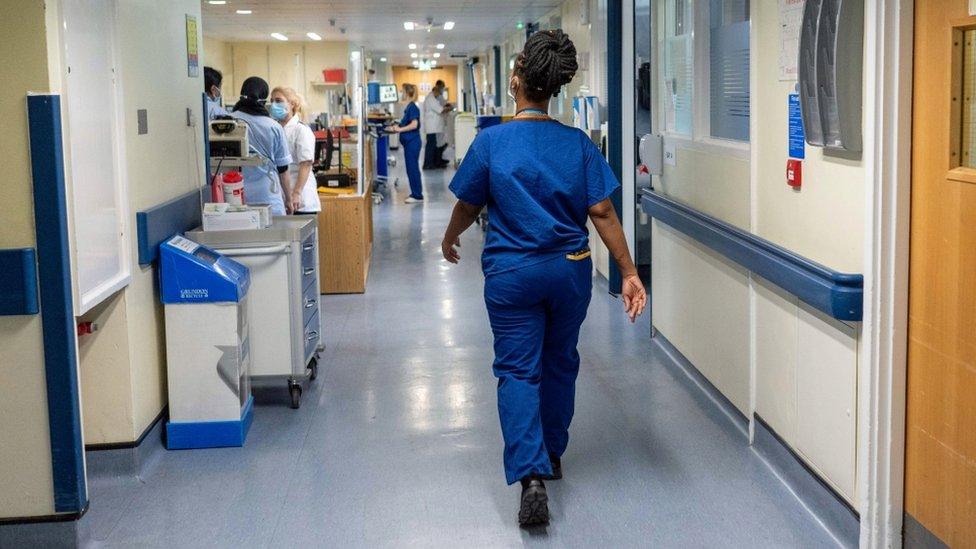Junior doctors in Scotland to strike after rejecting pay offer
- Published
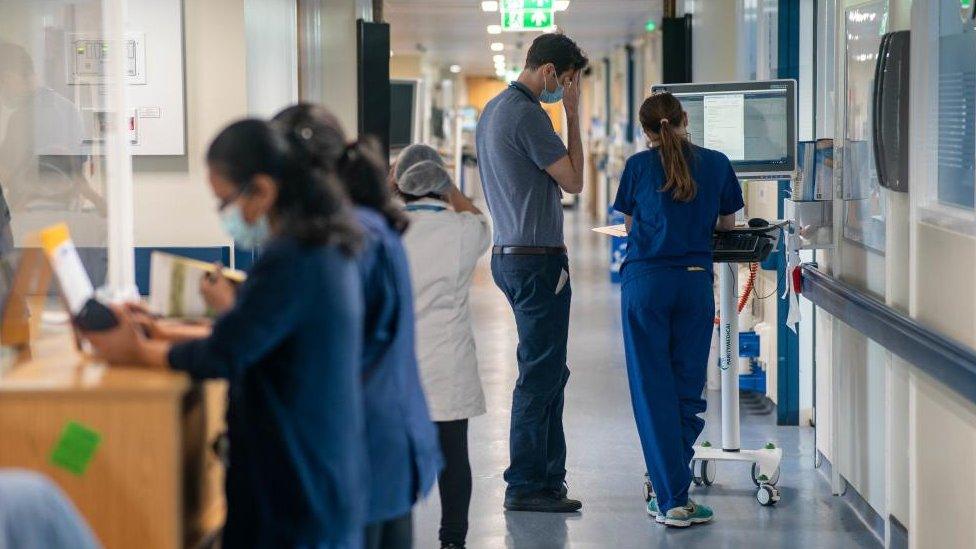
Junior doctors in Scotland are set to strike after rejecting a pay offer made by the Scottish government.
BMA Scotland said three days of strike action would take place between 12 and 15 July unless an improved offer was made.
The Scottish government had proposed a 14.5% pay rise over a period of two years, which it described as the best offer in the UK.
But the union said that 71.1% of its members had voted to reject the offer.
If the action goes ahead it will be the first time junior doctors will have gone on strike in Scotland.
Dr Chris Smith, the chair of the BMA's Scottish junior doctor committee, said members had spoken "decisively and clearly" - but that strike action would be taken "reluctantly".
He said: "It is beyond doubt that they do not consider this offer sufficient to begin the process of addressing the pay erosion we have suffered since 2008 - when pay for a junior doctor was some 28.5% higher.
"That is why our message to the Scottish government today is stark. Come back with an improved offer and we can still avert the need for strikes and the disruption they will cause us all and patients in particular.
"The ball is now firmly back in the government's court, and I hope they respond urgently and positively."
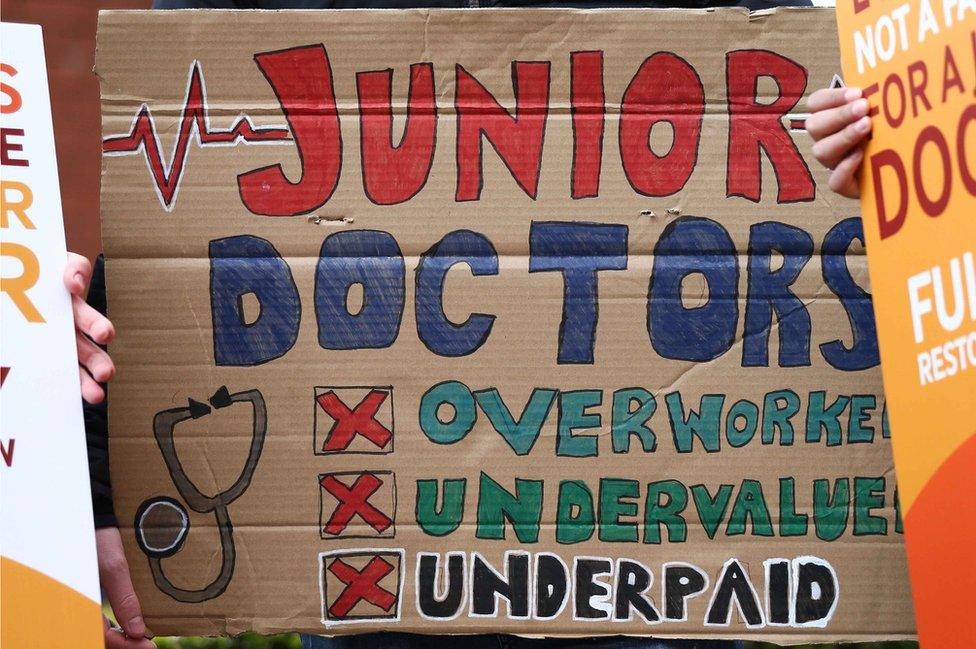
Industrial actions have already been taken by Junior doctors, ambulance staff and nurses in England
The union, which has been calling for a 23.5% increase, says it is now seeking an urgent meeting with Health Secretary Michael Matheson.
He said he was disappointed in the decision, and that strike action was in "no-one's interest".
"This was the biggest investment in junior doctor pay for the last 20 years and a step forward to modernising pay bargaining, restoring confidence amongst junior doctors and ensuring that their contribution to our healthcare system is appropriately recognised," he said.
"My door remains open, and I will meet with BMA Scotland later this week to discuss how we move forward."
He previously told the BBC he would "do everything" to avoid industrial action.
Junior doctors - fully-qualified medics who are not specialty staff doctors, consultants or GPs - make up 44% of the doctors in the NHS in Scotland.
They had originally voted to take strike action in May, before a fresh pay offer was made by the government a few weeks later.
That would have involved a pay rise of 6.5% in 2023/24 and an additional 3% towards an already agreed 4.5% uplift in 2022/23, as well as talks on a change to the system of pay reviews in future.
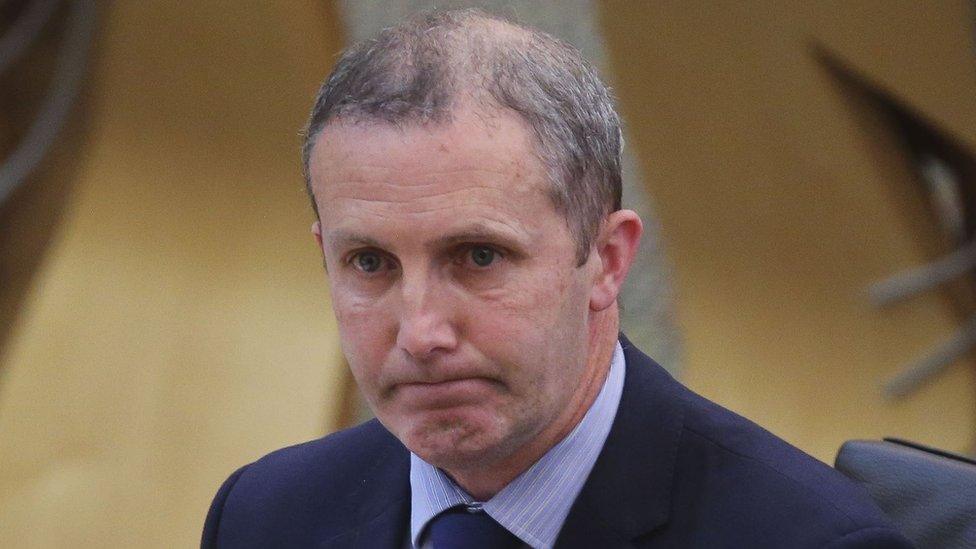
Michael Matheson said he would meet BMA Scotland this week
BMA Scotland put the offer to its members with no recommendation.
Scottish Conservative health spokesman Dr Sandesh Gulhane urged the government to "get back round the table" and find a solution to the dispute.
"Patients who are already suffering will be deeply alarmed at the impact looming strike action will have on waiting times which are already too high on the SNP's watch," he said.
Scottish Labour's health spokesperson Jackie Baillie said the responsibility for the strikes "lies solely" with the health secretary.
Scottish Liberal Democrat leader Alex Cole-Hamilton said that talks with the BMA should be escalated to bring the dispute to "a swift conclusion".
First Minister Humza Yousaf said the government would continue to engage with junior doctors.
And he added: "In my time as health secretary we didn't lose a single day of winter to NHS strikes - which is very different to every other part of the UK."
In England, Junior doctors who are asking for a 35% pay rise, are set to head to the picket line again on Wednesday as part of a 72-hour walkout. The latest industrial action by members in England follows strikes in March and April, leading to the cancellation of more than 196,000 hospital appointments.
Ambulance staff in England and Wales have also taken action with members belonging to three unions - GMB, Unison and Unite - striking in January. Unite members in the south-east walked out in May.
Related topics
- Published22 May 2023
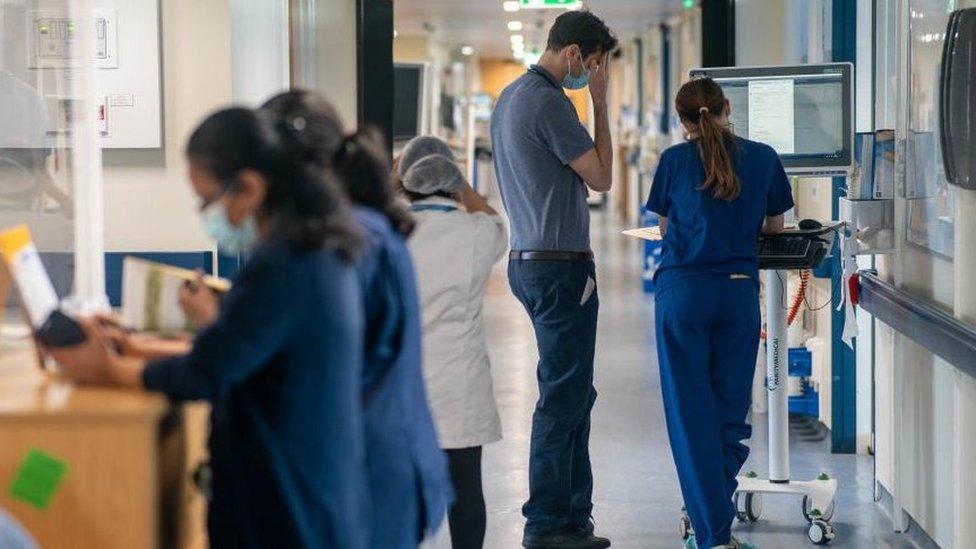
- Published7 May 2023
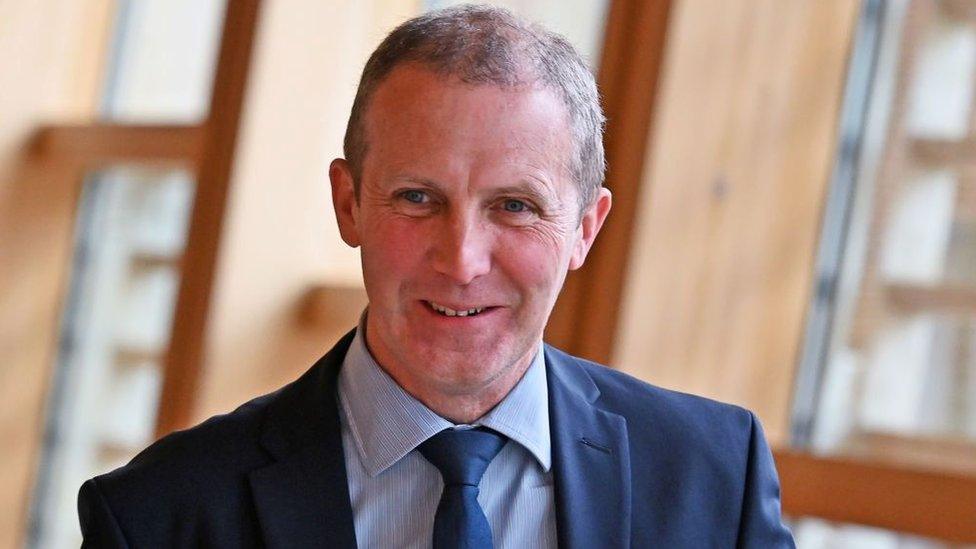
- Published5 May 2023
